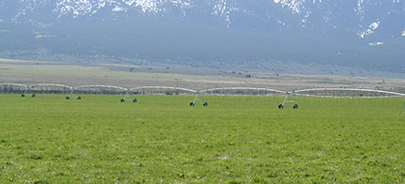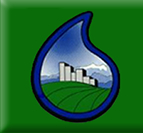 |
 |
Biosolids is generally used after applicable beneficial recycling criteria have been achieved, i.e., at the outlet of the stabilization process. Common stabilization processes include the following: aerobic digestion, autothermal thermophilic aerobic digestion (ATAD), anaerobic digestion, composting, alkaline stabilization, thermal drying, including flash, rotary, fluid bed, paddle, hollow-flight, disc, and infrared dryers, thermophilic pozzolanic fixation, acid oxidation/disinfection, and heat treatment/acid digestion.
Agricultural by-products are simply materials produced as a result of producing something else. In most cases, that "something else" is a product we choose to provide ourselves as a convenience or comfort. Each byproduct has certain characteristics which make it valuable as a resource for us. Many contain nutrients which can be safely utilized for agriculture or horticulture. Examples include potato skins and cleanings, processed waste food, etc.
A mixture of decaying organic matter, as from leaves, manure, biosolids and other organic material, used to improve soil structure and provide nutrients which meet criteria as set forth by the USEPA.
Material, especially barnyard or stable dung, often with discarded animal bedding, used to fertilize soil, primarily the excrement of the animal.
The undigested feed and food that is removed from the first division of the stomach of a ruminant animal, typically cattle, in which most food collects immediately after being swallowed and from which it is later returned to the mouth as cud for thorough chewing.
Domestic Septage is defined by the USEPA as a liquid or solids material removed from a septic tank cesspool, potable toilet, Type III marine Sanitation device or a similar system that receives only domestic septage (household, non-commercial, non-industrial sewage). Although small amounts of food grade grease in mixed into the domestic septage (less than 10% by agreement with the USEPA Region VIII), the material will still be considered domestic septage. Blue water, waste from portable toilets is considered domestic septage.
Sludge is generally used before applicable beneficial recycling criteria have been achieved which normally occurs at the outlet of the stabilization process. It should be used in tandem with a specific process descriptor, e.g., primary sludge, waste activated sludge, secondary sludge, etc.
|
Parker
Ag Services, LLC
Phone: (719) 775-9870 ![]() Toll
Free: 888-BIOSOLIDS
Toll
Free: 888-BIOSOLIDS ![]() Fax:
(719) 775-9871
Fax:
(719) 775-9871
53036 N Hwy 71 ![]() Limon,
CO
Limon,
CO ![]() 80828
80828
E-Mail: Scharpm@aol.com










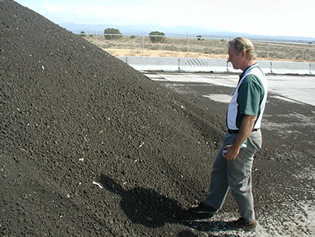

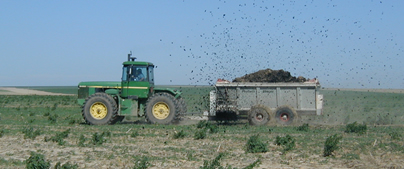

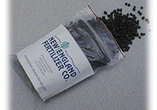 Pellets
are heat dried biosolids that meet the highest standard for use
as set forth by the USEPA and CDPH&E. They are "BB" shaped
hard shaped pellets that are used in traditional agricultural
and horticultural fertilizer. The material has commonly been
used in golf course turf management and has been sold to homeowners
for decades as a Trademarked name Milorganite.
Pellets
are heat dried biosolids that meet the highest standard for use
as set forth by the USEPA and CDPH&E. They are "BB" shaped
hard shaped pellets that are used in traditional agricultural
and horticultural fertilizer. The material has commonly been
used in golf course turf management and has been sold to homeowners
for decades as a Trademarked name Milorganite.